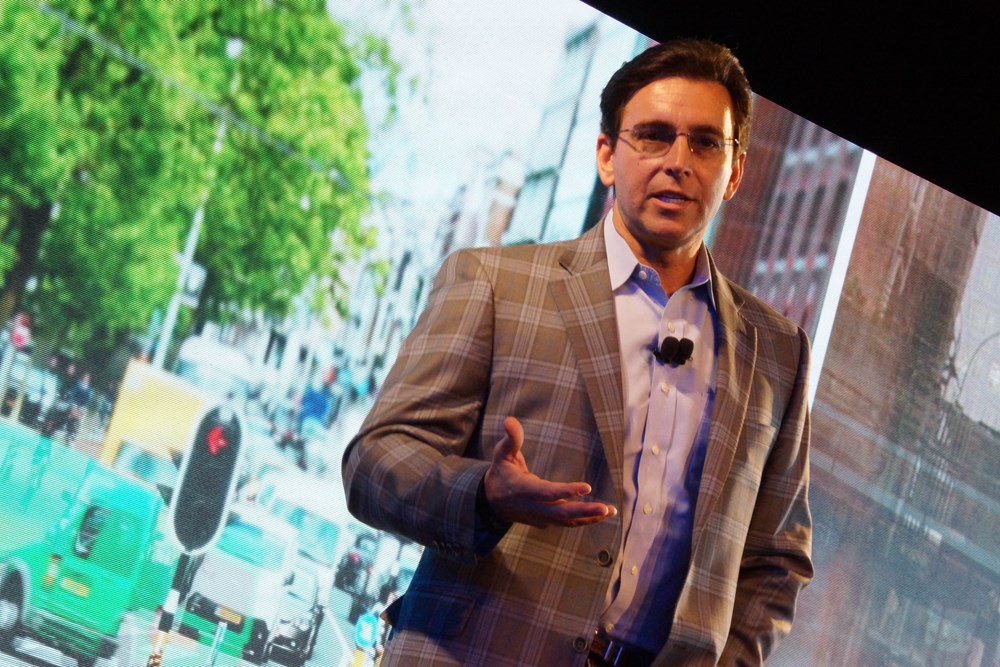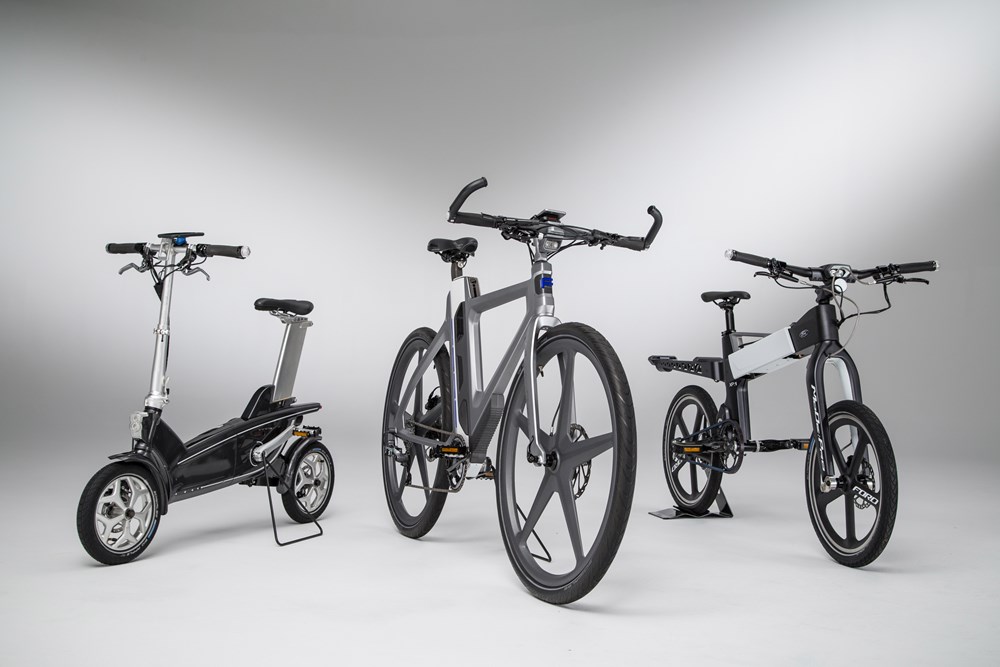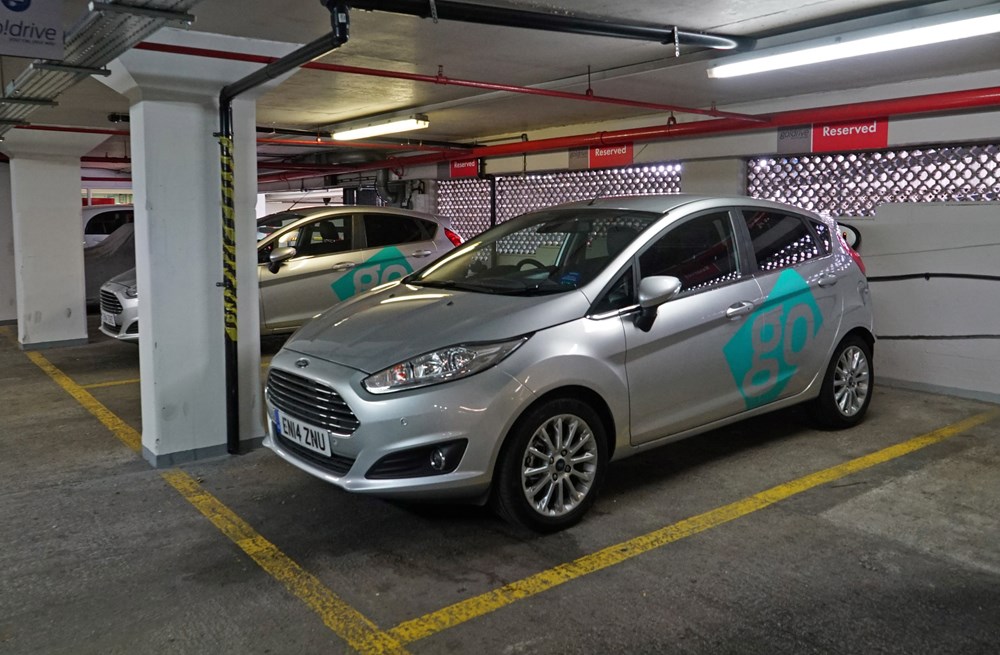According to Ford CEO Mark Fields, Ford, it would seem, no longer considers itself to be just an automotive company. No, it is also a “mobility company”.
Well, no kidding, you might say, cars are mobility. To which Fields would say you are right, but only partly so, and it is an increasingly diminishing part.
During his keynote speech at the start of the “Further with Ford” future trend event in San Francisco today, Fields expanded on the idea that Ford - and indeed all car manufacturers - could no longer afford to simply think of ways to sell more cars to more people and that the future would involve far more creative and flexible solutions.
“So what do we mean by a mobility company?” Fields said. “That’s a really important question, and simply put its more than just motion. Its more than moving from point A to point B. It’s really about human progress and dates all the way back to our founder Henry Ford.

Ford CEO Mark Fields
“His affordable car put the world on wheels. It made physical movement and mobility accessible to everyone and it gave people the opportunity and the ability to pursue new experiences and expand their own economic opportunities.
“Because Henry Ford understood that mobility was really about freedom. The freedom to choose where to live, where to work and where to play. And that freedom of mobility made peoples lives better for millions around the world.”
That is why at the star of this year Ford launched a series of 25 “Smart Mobility” experiments designed to tackle the issues arising from four “mega trends” that will affect the future of transportation.
The rapid expansion of the world’s population, the equally rapid growth of a global middle class, the corresponding health risks due to poor air quality and changing customer attitudes and priorities regarding vehicles and transportation in general.
“What we are seeing is software and connectivity technologies are driving vehicle innovation faster than ever,” said Fields.
“At the same time we have a new generation of customers who use technology to make their lives easier. And that’s where Ford’s Smart Mobility comes in, linking us both as an automotive and a mobility company.”
The Smart Mobility experiments included trials like the Dynamic Shuttle on-demand shared shuttle service in New York and London, where customers could share a shuttle to and from various locations, via a smartphone app and “Info Cycles” where sensors on bicycles were used to collect data on traffic patterns, pedestrians and road conditions.
 Another trial used existing vehicle parking technology - such as the self-parking systems and parking sensors in many Ford vehicles - to feed data into the cloud, where it could in turn be interpreted and sent back out to other cars. In other words, every car - whether the driver is looking for a parking spot or not - becomes a “probe” for vacant parking spaces, sharing that information with other cars in the area.
Another trial used existing vehicle parking technology - such as the self-parking systems and parking sensors in many Ford vehicles - to feed data into the cloud, where it could in turn be interpreted and sent back out to other cars. In other words, every car - whether the driver is looking for a parking spot or not - becomes a “probe” for vacant parking spaces, sharing that information with other cars in the area.
After six months of the experiments, Fields says that Ford has learned “tons and tons” and is now ready to move from experiments into implementing a number of new pilots.
The first pilot is called “GoDrive” an on-demand car sharing service that is being started in London. Ford will place 50 cars in 20 locations around the city, offering one-way rentals and guaranteed parking.
“Customers love guaranteed parking!” enthused Fields. “We also learned a number of lessons about the use of a smartphone app for the service - it needs to be easy to find cars, to find the parking spot and to find pricing.”
Another pilot scheme that will be launched in a number of cities in the USA as well as in London is peer-to-peer car sharing from Ford Credit. The scheme will provide a way for customers to rent their vehicles to others for short term use. Ford is partnering with Get Around in the USA and Easy Car Club in London and the programme will open up to 14,000 customers in 6 cities in the US and 12,000 customers in London.
“Think about this as AirBnB for cars!” said Fields, before going on to describe the final initiative that the company is putting in place - multi-modal urban mobility solutions.
 “In many cities driving from home to work simply doesn't work,” said Fields. Because of the expanding population, with more people living in cities, solutions that require several different modes of transport to get places are going to become increasingly common.
“In many cities driving from home to work simply doesn't work,” said Fields. Because of the expanding population, with more people living in cities, solutions that require several different modes of transport to get places are going to become increasingly common.
“While this (expanding urban population) may be a terrific opportunity for us to sell more vehicles to them, the way we engage with these customers might be different than in the past,” he said.
“Urban solutions to gridlock, parking, and the air quality challenges - it HAS to be multi-modal. And one of those modes is electric bikes - eBikes.”
Ford has unveiled three eBike concepts - the private MoDe:Me, the commercial MoDe:Pro and the lifestyle MoDe:Flex. All the eBikes can be disassembled and easily stored in a car (or a delivery vehicle, in the case of the MoDe:Pro) allowing the driver to park on the outskirts of a city and ride to their final destination.
All the eBikes connect to a smartphone app and Apple Watch app that provides weather and traffic information, “eyes-free” navigation (that uses haptic feedback in the handlebars to indicate a turn to the rider) and a “no sweat” mode that increases the rate of electric pedal assistance depending on the rider heart rate.
“We have made significant progress since starting Smart Mobility six months ago,” said Fields. “And we are shifting from experimentation to implement two strategic areas of focus - flexible use and ownership and multi-modal urban mobility solutions.
“As we enter one of the most transformative periods in our history, we are driving innovation in every part of our business as an automotive company AND as a mobility company, ultimately to make peoples lives better.”
The 2015 “Further with Ford” event continues over the next two days.





